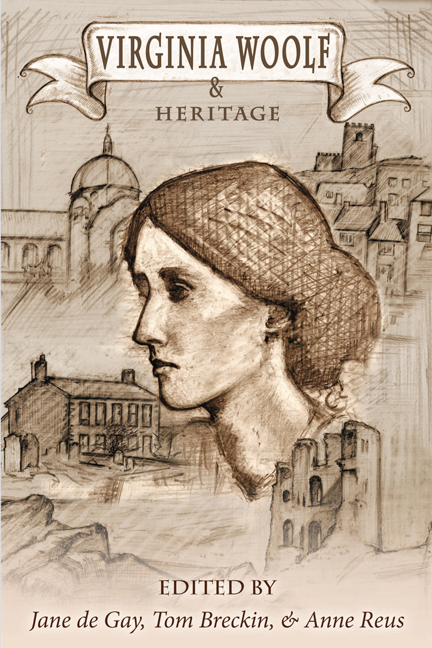Introduction
Summary
I've thought of an entirely new book: it may be two: Each more entirely new than the other. So my fortune gilds the future for me—if my father didn't leave me pearls, this was by way of a makeshift. (L3 344, 8th March 1927)
With these words, Virginia Woolf shared with Vita Sackville-West the first inkling of Orlando, a novel that would be deeply concerned with heritage: with history, genealogy, literary tradition, an ancient city, and a stately home. The lines also reveal Woolf 's rich, complex, and often conflicted relationship with heritage. Although Woolf was captivated by Vita, the handsome aristocrat, she was also sceptical of wealth and privilege and her tone here is somewhat competitive. She is ironic about Vita's inherited pearls, asserting instead her own “makeshift” inheritance: the vast intellectual heritage that had made her a writer and the wealth of English literature that she had first encountered through her father's recitations and his library. Yet, Woolf gave Vita a “makeshift” inheritance of her own in Orlando, a book that, as Nigel Nicolson wrote, “identified her with Knole for ever” thereby providing her with a “unique consolation for having been born a girl, for her exclusion from her inheritance, for her father's death earlier that year” (190). This strategy sits closely with Woolf 's call for women to “rewrite history” (AROO 45).
The papers in this book, which arise from a conference held at Leeds Trinity University (Yorkshire, UK) in June 2016, explore some of the complex dynamics of Virginia Woolf 's relationship with heritage, ranging across the themes of education and mentoring, heritage places and spaces, the literary and cultural past, the queer past, modernism and its relationship with heritage, the writing of lives and history. It also looks at ways in which later generations of writers from several cultures have traced their heritage from Woolf.
Heritage: A Debate
The collection opens with a challenging essay by Jane Goldman that invites us to consider the politics of what is meant by “heritage.” Goldman argues that the term is laden with implications of legal inheritance, patriarchal privilege and the exclusion of women, and that the “heritage industry” is a term that masks the appropriation or “plundering” of artefacts.
- Type
- Chapter
- Information
- Virginia Woolf and Heritage , pp. viii - xiiPublisher: Liverpool University PressPrint publication year: 2017



